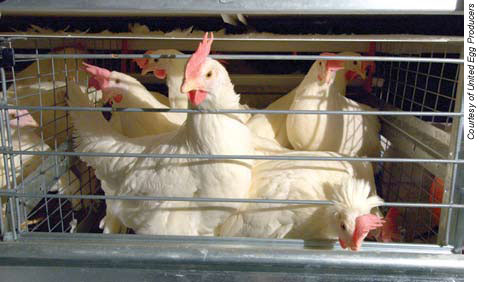California initiative targets livestock housing

California voters will get to decide this November whether certain livestock in their state have a right to more spacious quarters. The ballot initiative, sponsored by a coalition of animal protection groups including the Humane Society of the United States, would require that egg-laying hens, veal calves, and pregnant sows be provided with enough room to lie down, stand, turn around, and fully extend their limbs.
If passed, the Prevention of Farm Animal Cruelty Act would take effect in 2015. The HSUS announced in February that 790,486 Californians had signed petitions supporting the initiative. A total of 433,971 valid signatures are required for a measure to qualify for the November ballot.
The California secretary of state determined in April that there were enough valid signatures to place the act on the November ballot.
"Americans oppose cruelty and believe that animals, including farm animals, deserve to be treated with respect and compassion," said Gene Baur, president of Farm Sanctuary, another coalition member. "In November, Californians will have the opportunity to make their voices heard at the ballot box and outlaw some of the worst factory farm abuses."
Ballot initiatives, also known as citizen's or popular initiatives, are a means for submitting legislative proposals to the public for a vote. More than 20 states and the District of Columbia allow these forms of "direct democracy" as do a number of local and city governments.
Referendums pertaining to livestock housing have been successful in at least two states during the past few years. Gestation stalls were banned in Florida by voters in 2002. Four years later, Arizona voters also said no to gestation as well as veal calf stalls in their state.
The California initiative requires that veal calves, egg-laying hens, and pregnant sows kept on a farm not be housed in a manner that prevents them from "lying down, standing up fully, and fully extending his or her limbs" and "turning around freely." A hen, for instance, would have to be able to fully spread both wings without touching the side of an enclosure or other hen.
Violators could be charged with a misdemeanor and face a fine of up to a thousand dollars, imprisonment, or both.
Scott Macdonald, a spokesman for Californians for Sound Farm Animal Agriculture, an organization created to defeat the initiative, called the proposal "interesting" in that California isn't a major veal producer, and sow gestations stalls are already being phased out by the state's major pork producer. The primary target, he said, is the state's sizeable egg industry.
With more than 19 million egg-laying hens, California is the nation's fifth largest egg-producing state, after Iowa, Ohio, Indiana, and Pennsylvania, according to the Agriculture Department and American Egg Board.
Macdonald says professionals should decide how to balance productivity and animal welfare. "We believe the practices of farmers to raise egg-laying hens need to be determined by animal scientists, by veterinarians, by those people experienced in animal welfare, and not at the ballot box. These need to be sober, considered discussions based on science and not emotion, and we believe that is what is practiced in California today," he said.
The AVMA's positions on the housing of layer chickens, veal calves, and pregnant sows are available on the AVMA Web site under Animal Welfare by clicking on AVMA Animal Welfare Policy Statements.